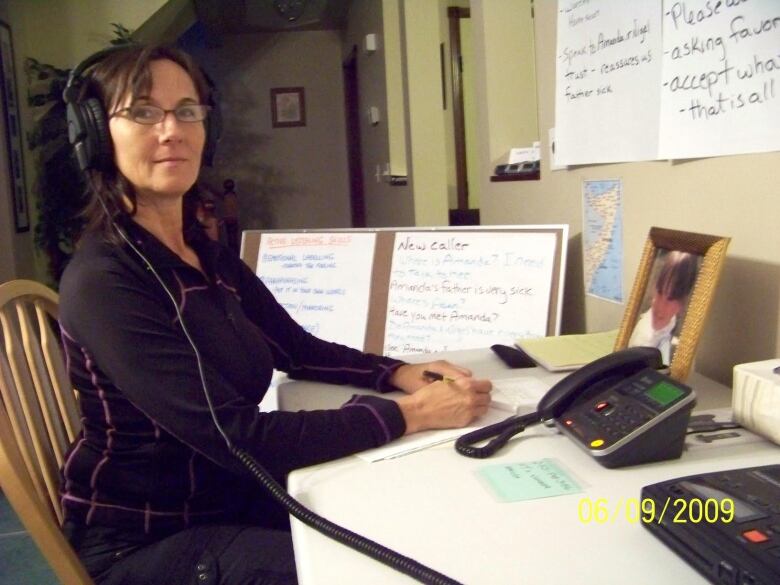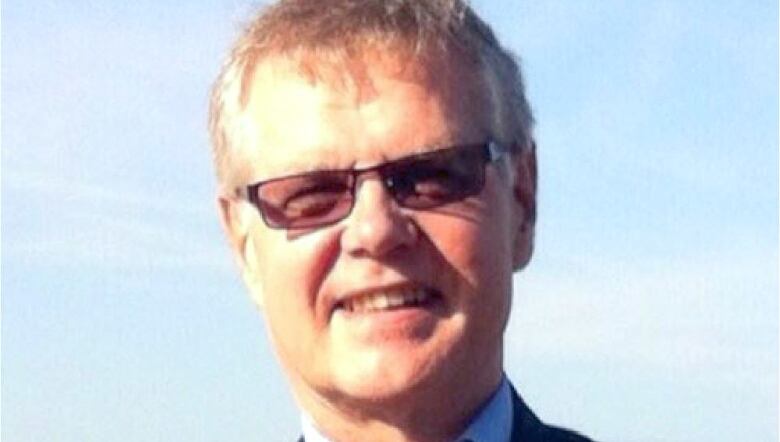Kidnapping survivor Amanda Lindhout agrees Ottawa shouldn't pay ransoms
Tortured journalist begged her mother to pay ransom after she was kidnapped in Somalia
Amanda Lindhout, the Canadian freelance journalistwho was kidnapped in Somalia in August 2008 and held for 15 harrowing months,says sheagreeswith and understands the federal government's policy of not paying ransoms.
In an interview thataired on Monday,Lindhout and her mother, Lorinda Stewart, talked to CBC'sThe Current host Anna Maria Tremonti about the agonizing phone conversations they had asLindhout after brutal treatment by her captorsbegged her motherto come up with the money that would set her free.

The "worst call," they both agreed, happened after Lindhout had been held for more than a year.Her captors were frustrated that they had not received the ransom money they had demanded, Lindhout said, and she was tied up, gagged, tortured and assaulted for three straight days.
Thenthey told hershe would be tortured every dayuntilthey got payment and put her on the phone with her mother.
"Mummy, mummy, mummy, mummy, mummy," an anguishedLindhoutsobs in a tape recording of the call shared with The Current."You need to pay the million dollars now becausethey've started to torture me."
Thousands of kilometres away, in Alberta, Stewart's voice was strong,despite her terror.
"Amanda, listen to me. We are doing everything that we can," shesaid. "We will not stop until you come home. I am so sorry that it has taken so long."
"Amanda, Amanda, we love you," she continued."We have offered half a million dollars. We have sold everything that we have. We are trying so hard, Amanda."
The Canadian government's policy was and still is today not to pay ransoms. The practice isunder renewed scrutinyafter Canadian hostage John Ridsdel was killed by his captors in the Philippines last week.
- Family devastated after JohnRidsdelkilled by captors in Philippines
- JohnRidsdelexecution: Why refusing to pay ransoms may not protect Canadians
"I have thought so much this weekabout his family and the people who lovehim," Lindhouttold The Current, speaking alongside her mother in CBC'sCalgary studio. "I can't help toobut think about what I went through and how lucky I am to be alive."
Families paid $1M ransom
In November 2009, Lindhout was finally freed after her family, together with the family of her fellowcaptive, photographer NigelBrennan, managed to gatherabout $1million for ransom.
Despite thehorrific ordeal,Lindhout and her mother told CBC News they stand behind the federal government's policy of not paying ransoms.
"It's so complicated, and people come to me expecting in a way that I would have a really clear answer about that," Lindhoutsaid."The answer is probably not what most people expect, given what I've been through, but Iunderstand [Prime Minister Justin]Trudeau's position. I actually understand and agree with how a policy like that serves to protect Canadians who are out travelling around the world."

But Lindhout and her mother say thatthere is a part of Canada's policy that needs to change. When Stewart was desperately trying to raise money for her daughter's ransom, she said, she tried to do it quietlywithout media attention, because the RCMPsaid it wasillegal in Canada to pay ransom and it carried a penalty of up to 10 years in prison although they also told herno one had ever been chargedwith the offence.
"I think that the families should be told that they have the freedom to do whatever they feel they need to do," Stewart said. "While I worked with the RCMP[on securing Lindhout'srelease],I always worked under the threat that if I were to do anything outside of what they gave me permission to do that they would drop our case."
Lindhout and her mother are still working through the trauma of the kidnapping. Lindhoutsuffers from severe post-traumatic stress disorder (PTSD) andis in almost daily contact with a psychologist in New York, who has helped her to rebuild her life.
She also struggleswith guilt.
"The fact that my decision as a young woman to go into Somalia, of course not wanting to hurt anybody, you know, wanting to pursue my ambitions as a young journalist it had really serious consequences for so many people," Lindhoutsaid."The reality of that really hit me hard when I came home."
Lindhout's mother's health deteriorated from the stress. But mother and daughter are "extremely close" and helping each other to heal, they say.
They are both preparing themselves to face one ofLindhout'salleged captors,Ali Omar Ader.
RCMP allegeAderwas the "main negotiator" andarrested and charged him in Ottawa in June 2015.
The Current contacted the RCMP for comment on this story. In their response, they said it was inappropriate to comment because the case is before the courts.













_(720p).jpg)


 OFFICIAL HD MUSIC VIDEO.jpg)
.jpg)



























































































